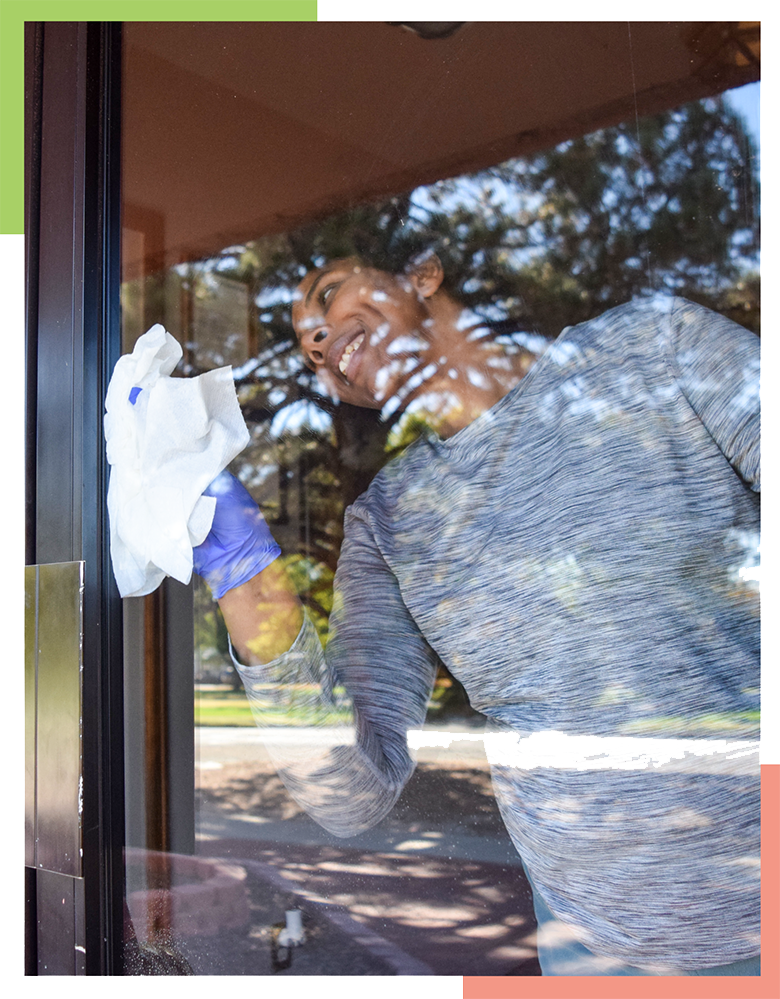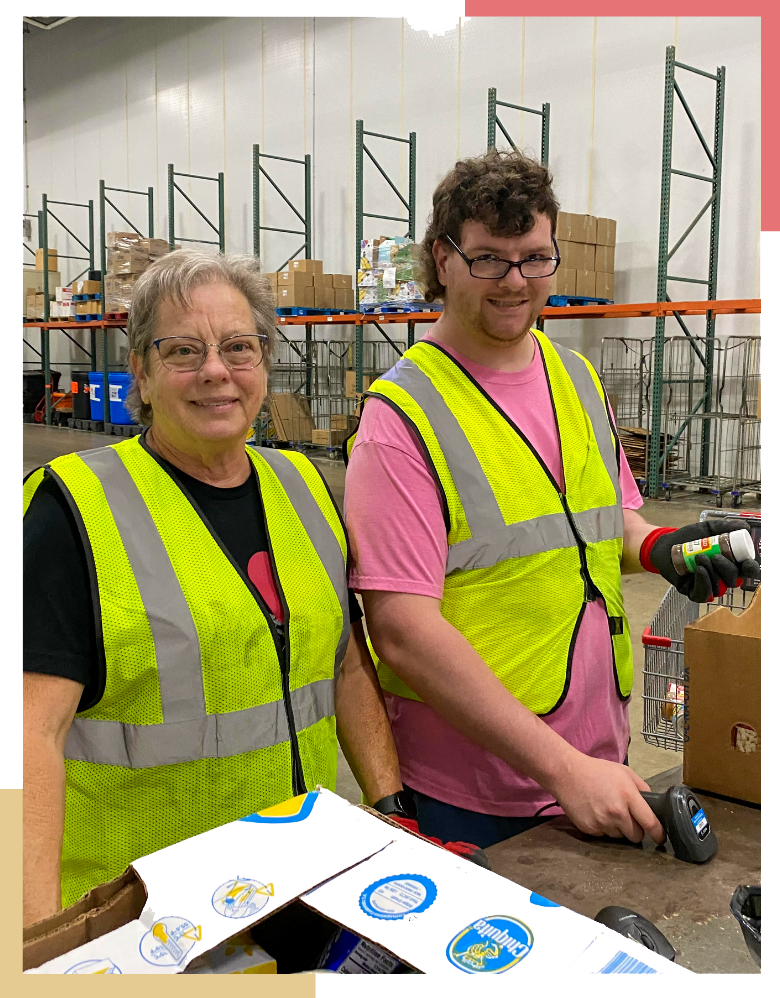Regional Centers Individuals and Families

The Division of Regional Centers (DRC) strives to engage parents and guardians in routine conversation, collaboration and information sharing. This includes important updates happening in the wider community related to individuals with intellectual and developmental disabilities (IDD).
Parent/guardian meetings
Each Regional Center holds monthly meetings as an opportunity for parents and guardians to connect with Regional Center directors and share insights on enhancing the support and resources available to their loved ones. Together, this group addresses concerns, celebrates successes and collaborates on creating the best possible environment for growth and development.
Grand Junction Regional Center
Parent/guardian meetings are held on the third Monday of each month. Call Grand Junction Regional Center at 970.245.2100 for exact time and location.
Pueblo Regional Center
Parent/guardian meetings are on the second Tuesday of each month. Call Pueblo Regional Center at 719.585.4001 for exact time and location.
Wheat Ridge Regional Center
Parent/guardian meetings are on the first Thursday of each month. Call Wheat Ridge Regional Center at 303.463.2500 for exact time and location/virtual meeting link.
Case Management Redesign
In 2024, the Colorado Department of Healthcare Policy and Finance (HCPF) rolled out its Case Management Redesign plan. This plan seeks to enhance the quality, efficiency and person-centeredness of care while addressing long-standing issues related to differences in supports available throughout the state of Colorado.
Case Management Redesign refers to several initiatives designed to make accessing long-term services and supports easier. By changing case management agencies (CMAs) to serve all Home and Community-Based Services (HCBS) waivers, people have one place to go, making sure there are the right number of case management agencies in Colorado. This redesign also increases the quality of case management services.
The table below shows specific ways the changes will benefit individuals and families.
| Before | Now |
|---|---|
| The type of HCBS waiver that an individual or caregiver selected determined the individual’s CMA type. | Individuals are now served by one CMA in their area, regardless of age, disability or qualified waiver. |
| Individuals and caregivers were required to go to different places for support, based on the individual’s disability. | Individuals and caregivers can now find programs and services that work best for the individual, based on their service needs and goals. |
| An individual’s quality of services and support could be subpar, but individuals and caregivers might not know how to complain and improve their situation. | CMAs must have a process for individuals and caregivers to complain and request a new case manager. |
| Case management services differed between CMAs. | With fewer CMAs to manage, HCPF can oversee and meet individuals’ service needs and goals. |
Admissions and transitions
What you need to know about the admissions process
- Case management agencies (CMAs) are responsible for submitting referrals for admission to the Regional Centers. Visit the Colorado Department of Health Care Policy and Financing's online directory to find each county’s CMA.
- Admissions are reserved for individuals for whom all viable and appropriate care options have been explored.
- Admissions are determined on an individualized basis, keeping in mind specific support needs.
- Admissions are for short-term stabilization.
What you need to know about transitioning back to the community
- Once individuals meet their specific and person-centered transition criteria, the Regional Center teams work closely and intently on a thorough transition back to the community of choice.
- The Regional Centers provide at least 90 days of transition support services following an individual’s transition back to the community.
View/download fact sheets with additional information on DRC's admission, Community Support Team and Transition Coordination Agency
- Admission fact sheet (pdf)
- Community Support Team consultation fact sheet (pdf)
- Transition Coordination Agency fact sheet (pdf)
Questions about Regional Center admission or DRC's Community Services Team consultation? Email cdhs_drcinquiries@state.co.us.
Self-advocacy skills
Self-advocacy skills are crucial for individuals with IDD residing at the Regional Centers. Staff closely works with the individuals to learn or sharpen the following skills:
- Assertiveness
- Communication
- Decision-making
- Independence
- Knowledge of rights
- Problem-solving
- Role-playing exercises
- Self-awareness
- Self-confidence
- Support networks

BRIDGES - Your Path, Your Way
BRIDGES - Your Path, Your Way, formally referred to as “day programming,” covers activities performed during the day, night, weekends and holidays. Services and support are provided in:
- Specialized habilitation (facility-based)
- Supported community connections (non-facility-based)
- Pre-vocational services (facility-based and non-facility-based)
- Supported employment
BRIDGES - Your Path, Your Way is built upon the following foundations:
- Tailoring activities and support services to meet the unique needs and preferences of each individual.
- Involving individuals in decision-making processes to ensure their goals, interests and aspirations are central to the program.
- Offering opportunities for individuals to learn and enhance various skills, such as social, communication, vocational and daily living skills.
- Facilitating participation in community-based activities and promoting inclusion and interaction with the broader community.
- Employing trained and experienced staff knowledgeable about best practices in supporting individuals with IDD.
- Monitoring progress, identifying areas for improvement and adjusting programming accordingly.
- Ensuring a safe and accessible environment for all individuals, including accommodations for mobility and sensory needs.
- Collaborating with families and guardians and engaging them in the planning and implementation of the program to provide holistic support.
- Offering a variety of meaningful and engaging activities that promote independence, autonomy and well-being.
- Regularly reviewing and updating program practices based on feedback, research and evolving best practices in the field.
Employment First
"Employment First" is a policy approach and philosophy that prioritizes and promotes the idea that individuals with disabilities should have opportunities for integrated, competitive employment. It emphasizes the importance of inclusion, equal opportunities and providing the necessary support and accommodations for individuals with disabilities to succeed in the workforce. This approach aims to break down barriers and create a more inclusive society where people with disabilities can fully participate in the workforce alongside their non-disabled peers.
DRC is fully committed to the concept and philosophy of "Zero exclusion," a principle associated with the Employment First approach. It rejects the idea of excluding individuals from employment solely based on their disabilities, behaviors or benefits and instead promotes the belief that everyone has the right to meaningful work and should be provided with the necessary support to achieve employment goals.


DRC is determined to translate the principle and concept of Employment First into reality in the three Regional Centers and is actively working in-house with the Division of Vocational Rehabilitation to make this happen.
Employment First collaborations and partnerships have included:
- King Soopers Reclamation Center
- Hotsy car washing crew
- Emporium pet supplies
- Randi’s Pizza
- HOA lawn services
- Federal Center Station
- Coorstek
- Pueblo West Metro swimming pool program
- Christ Life Ministries